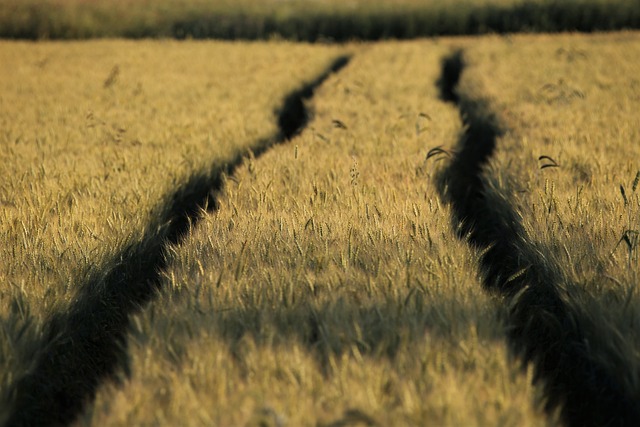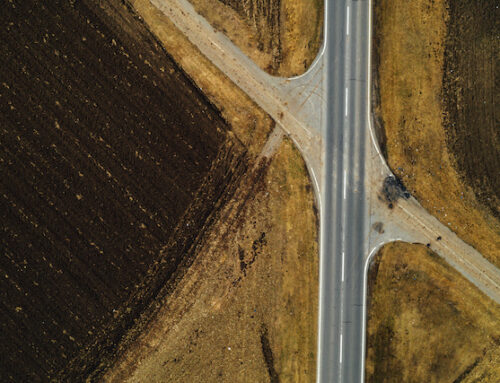In a farming divorce, the consequences of separating often extends far beyond those of the spouses alone. Family farms are much more than just another property — they’re businesses, homes, and the product of years, and often generations, of toil. Untangling those ties during a divorce sometimes brings a level of complexity that’s unseen in most separations.
This guide breaks down what makes farming divorce unique, and what each party should consider; whether you’re trying to protect your livelihood or understand what you may be entitled to. From asset valuations to forms of dispute resolution, you will find detailed practical insights designed to help you navigate rural separation with confidence.
What is Unique About Farms and Divorce?
Farming divorce tends to be much more intricate than most separations. The agricultural lifestyle is typically passed down from one generation to the next, so brings with it a lot of sentiment. When a farm is divided, it’s not just a transaction involving bricks and mortar — it’s the final act following generations of hard work.
Aside from being a lasting reminder of the people who built them, many farms also act as family businesses. Naturally, this leads spouses who work the land to question whether they’ll still get to enjoy the same livelihood at the end of their relationship. Although some valuable assets may be tied up in trusts or complex business structures, others might not be afforded the same level of protection.
Ultimately, many of the questions around farming divorce will be fairly conventional. Where will everyone live post-separation? How will the assets (and debts) be split? What value of child maintenance is fair? However, the ‘difficult’ issues, such as what happens to the family farm and business in the years to come, can provoke disputes that take a long time to resolve.
Finally, unlike other types of property, farms can be difficult to divide without damaging their viability. Many of them are asset-rich but cash-poor, which presents further challenges for the financial settlement.
Legal Principles in Divorce (England & Wales)
The laws that govern how farms and divorce are dealt with in England and Wales are the same as other relationships or lifestyles. Essentially, any assets acquired over the course of a marriage are usually considered to be part of the overall matrimonial ‘pot’; i.e., subject to division. This includes all land, property, and business interests.
Although the courts generally prefer to avoid dividing longstanding businesses, their main aim is reaching a fair outcome for everyone.
To do this, they will take into account:
- The length of the marriage.
- The financial (and non-financial) contributions of each party.
- The welfare of any children or dependents.
- Each party’s earning capacity and future needs.
Anyone going through a farming divorce should note that there isn’t an automatic 50/50 rule — which can have a huge impact on family farm divorces. Ultimately, even inherited/pre-marital assets can be shared to ensure no one is at a financial disadvantage as a result of the separation. Should you be concerned about the consequences of divorce on your agri-estate, you should seek legal advice at the earliest opportunity.
Legal Strategies for Protecting a Farming Business in Divorce
If you’re a farmer facing divorce, protecting your livelihood is likely a top priority. There are a number of options at your disposal to attempt to safeguard your best interests: ranging from nuptial agreements to trusts. Although none of these strategies are guaranteed to ringfence assets, they can be effective when used correctly.
The most common strategies include:
- Inheritance and Pre-Marital Assets: If your farm was inherited, or acquired long before the marriage, the court may consider ring-fencing a portion of its value — though this is not guaranteed.
- Business Structure: Farms held in a trust, or through partnerships/ limited companies, may offer some protection but must be carefully structured and properly documented. It’s also crucial that you can prove that these safeguards weren’t created with the sole intention of depriving a spouse of their fair share.
- Prenuptial and Postnuptial Agreements: While not automatically binding, courts are increasingly giving weight to well-drafted nuptial agreements. Even so, for this type of document to be enforceable, it must have been entered into freely, with both parties having provided full financial disclosure after obtaining independent legal advice.
Should the courts come to the conclusion that any of these strategies have been adopted in bad faith, it will usually result in a less favourable settlement. It’s especially vital that you are completely transparent about the assets you own. Attempting to hide, or transfer, possessions could lead to more severe penalties, ranging from having to settle all legal fees to a criminal conviction.
Guidance for Spouses Who Want a Fair Share
If you’ve spent time supporting a farming business — whether directly or by running the home — your contributions matter. Generally speaking, the longer the marriage, the likelier it is that the courts will see assets and individual contributions as part of a shared endeavour. Eventually, the distinction between what spouses brought into the marriage loses relevance, especially in longer marriages.
In legal terms, the court may treat such assets as “matrimonial property”, making them subject to division.
Consider the following to get a better chance of a fair share:
- Non-Financial Contributions: Courts recognise roles such as child-rearing, homemaking, and administrative support as being valuable contributions to the relationship.
- Housing and Income Needs: Even if assets are in your spouse’s name, you may still be entitled to a share that meets your needs — especially after a long marriage or civil partnership.
- Pensions and Maintenance: Don’t overlook long-term financial support, especially if your earning capacity is lower due to years spent in a supporting role. Pensions are sometimes overlooked during farming divorce cases, which puts spouses at risk of missing out on a share of often valuable assets.
The Importance of Asset Valuation in Farming Divorce
It’s impossible to reach a fair settlement unless all assets have been declared and accurately valued. While there are several methods for valuing a farm, each approach could yield slightly different results. These variances are common sources of dispute around the subject of farming businesses and divorce.
You’ll usually need expert valuations for:
- The land and buildings
- Livestock and equipment
- Farm subsidies and quotas
- Business goodwill/reputation and future income
An accurate, fair valuation is critical to ensure a reasonable settlement.
How Are Farms Valued in Divorce?
Valuing a farm in a divorce isn’t as simple as checking estate agents or auction prices — it requires expert input and a complete understanding of the business. A court will usually require a specialist rural valuer to assess each important element.
These include:
- Land and Buildings: Valuation usually based on agricultural or market value, taking into account the farm’s location, use, and development potential.
- Farmhouse: Whether it’s treated as part of the business or a family home can affect its value.
- Machinery and Equipment: Valued second-hand, often using depreciation schedules or expert input.
- Livestock: Tends to be based on current market prices and herd quality.
- Subsidies and Entitlements: These can have a cash value, especially under active schemes.
- Business Structure and Goodwill: If the farm is run as a business, future income and viability may also be considered.
Because farms often have significant fixed assets but modest cashflow, any valuation must also account for debts, tax liabilities, and the practical implications of dividing or transferring property.
Common Disputes in Family Farm Divorce (and How to Handle Them)
When it comes to a farming business and divorce, there are numerous sources of potential dispute. Although these features — living conditions, dividing assets, inheritance, etc. — are broadly similar to other relationships, the stakes often seem higher because of the proud family histories that are fairly unique to agriculture.
The most common questions are:
- Who gets to stay in the farmhouse?
- Can the farm be divided without putting an end to the enterprise altogether?
- What will happen to land that is expected to be inherited?
The court has wide discretion here, but should aim to balance the needs of each spouse without damaging its future as a viable business. However, as we’ve established, preserving the farm is not the absolute priority — fairness remains the core principle.
How to Avoid Going to Court
Many farming divorces are settled outside of court through a combination of mediation and collaboration. The ability to cooperate can be invaluable for anyone who wants to keep timescales and stress to an absolute minimum. And, not only does this benefit the divorce itself: it can also make future conversations more open and amicable.
If you’re expecting a contentious farming divorce, a solicitor should recommend:
- Traditional Mediation: A neutral third party will help both sides reach a voluntary agreement together.
- Integrated Mediation: Integrated mediation combines legal, financial, and emotional support in one process; helping farming families reach fair, practical agreements without going to court. It can be especially helpful in protecting the viability of the farming business during the divorce process.
- Collaborative Law: Both parties and their solicitors work together in open meetings to negotiate a fair settlement.
These routes not only save time and money — they can also preserve family relationships for the road ahead.
Tackle Family Farm Divorce With “The NW’s Premier Family Law Firm”
Farming divorces require careful handling. From inherited land and trusts to livestock, machinery and shared homes, there’s no cut and paste approach. However, with the right guidance it’s possible to reach fair, practical outcomes that properly reflect both parties’ contributions and future needs. Whether your goal is to preserve the farm, secure financial independence, or avoid lengthy disputes, early legal advice is essential.
Where possible, resolving matters collaboratively can help protect not just the farm, but important family relationships too. Mediation and tailored legal strategies are often key to avoiding drawn-out court battles — especially when the future of a family business is at stake.
Described by The Legal 500 as “…the premier family law firm in the North West (of England)”, our team includes experts in farming and high net worth divorce. We understand the pressures unique to agricultural families so, if you’re facing separation and need trusted, discreet advice, we’re here to help — with a clear focus on achieving the best outcome, as amicably as possible.
Contact us to arrange your FREE consultation today.
Request a Callback
Leave a few details below and one of our team will be in touch to discuss how we can support you with your legal needs. Please note that we cannot offer Legal aid.















